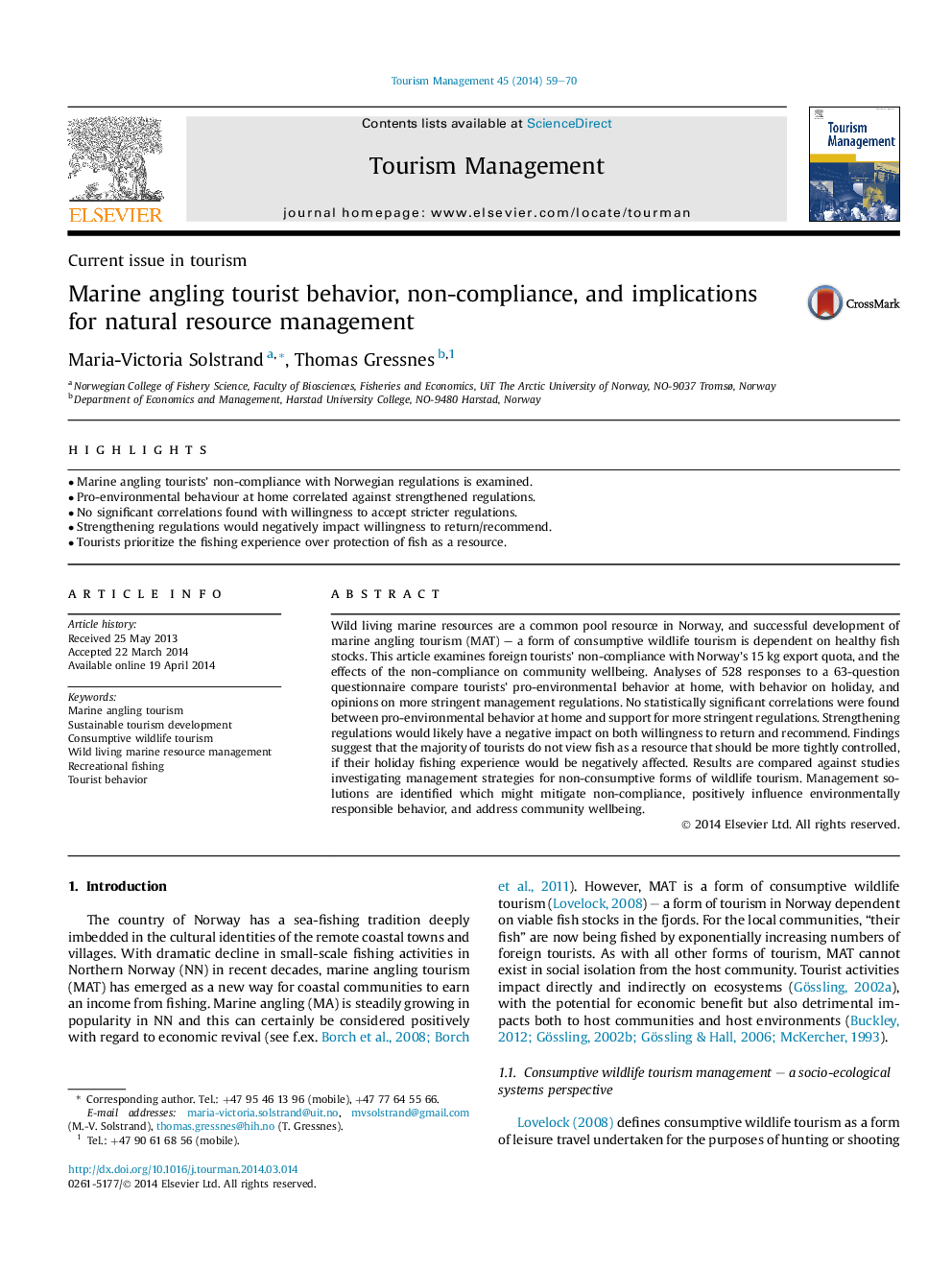| Article ID | Journal | Published Year | Pages | File Type |
|---|---|---|---|---|
| 1012053 | Tourism Management | 2014 | 12 Pages |
•Marine angling tourists’ non-compliance with Norwegian regulations is examined.•Pro-environmental behaviour at home correlated against strengthened regulations.•No significant correlations found with willingness to accept stricter regulations.•Strengthening regulations would negatively impact willingness to return/recommend.•Tourists prioritize the fishing experience over protection of fish as a resource.
Wild living marine resources are a common pool resource in Norway, and successful development of marine angling tourism (MAT) – a form of consumptive wildlife tourism is dependent on healthy fish stocks. This article examines foreign tourists' non-compliance with Norway's 15 kg export quota, and the effects of the non-compliance on community wellbeing. Analyses of 528 responses to a 63-question questionnaire compare tourists' pro-environmental behavior at home, with behavior on holiday, and opinions on more stringent management regulations. No statistically significant correlations were found between pro-environmental behavior at home and support for more stringent regulations. Strengthening regulations would likely have a negative impact on both willingness to return and recommend. Findings suggest that the majority of tourists do not view fish as a resource that should be more tightly controlled, if their holiday fishing experience would be negatively affected. Results are compared against studies investigating management strategies for non-consumptive forms of wildlife tourism. Management solutions are identified which might mitigate non-compliance, positively influence environmentally responsible behavior, and address community wellbeing.
